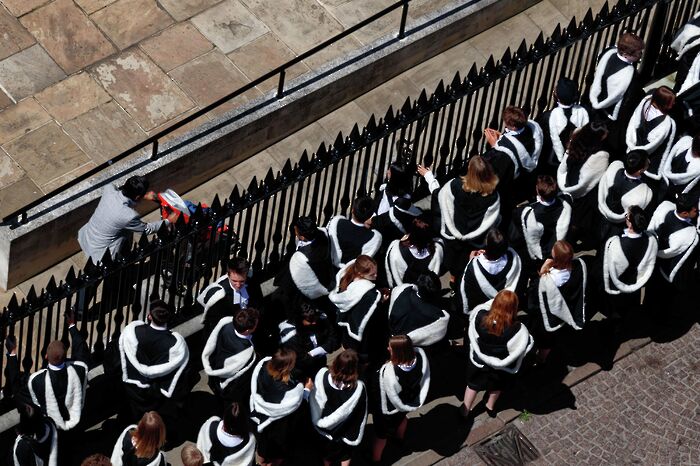Government report proposes tuition fee reduction to £7,500
The proposed changes to Higher Education provision, published in a report by the Government-led Augar Review, have raised concerns about the future of university funding

The Review into Post-18 Education and Funding, informally known as the Augar Review, has proposed wide-ranging changes to the provisioning of university finances including a recommendation to cut student tuition fees from £9,300 to £7,500 per year.
The report, published yesterday, has also recommended changes to the provision of student funding, including a restoration of the Maintenance Grant for prospective students from socially-disadvantaged backgrounds which could amount to £3,000 per year per student.
The five-person commission tasked with conducting the review is chaired by Dr Philip Augar, a former equities broker and financial expert, and includes senior figures in the Higher Education sector including the Master of University College, Oxford and Vice-Chancellor of Nottingham Trent University.
The Review commission was formed by the government in February 2018 to provide recommendations for the continuing financial sustainability of the tertiary education sector in the context of rising absolute entry rates into Higher (University-level) and Further (technical and vocational) education.
As well as changes to the level of tuition fees, the Report suggests changes to the process of repayment which would cut the rate of interest on tuition fee repayments but extend the duration of the repayment period from 30 to 40 years and reduce the graduate repayment income from £25,725 to £23,000 per year.
In an official statement on the Report, the Russell Group association, a union of public research universities including the University of Cambridge, raised concerns that the proposed changes “would result in lower and middle earners paying more for their degrees than under the present system, as they will need to start repaying earlier and for a longer period of time.”
Members of the Higher Education sector have also raised concerns about the potential shortfall in funding that the proposed tuition fee reduction could cause for university portfolios at a time when Higher Education institutions are facing long-term financial uncertainty from Brexit.
Vice-Chancellor Stephen Toope last week also echoed warnings in the Higher Education sector that “if the Government is not able or willing to make up for that reduction [through reductions in tuition fee payments] through other grants, the total income of the UK University sector will fall”, adding that “although Cambridge is fortunate in that it does not rely on Government and tuition fee income as heavily as some other institutions, we nevertheless need to be prudent in our financial planning.”
However the Report’s proposal to reintroduce the Maintenance Grant has been welcomed, as well as the proposal to freeze the accumulation of interest during years of study, and a cap on the accumulation of interest on tuition fee repayments at 1.2x the original value of the loan.
The business of the commission had previously been the subject of a series of leaks, including one in January which rumoured that the Review would recommend the introduction of a tiered funding system which would see arts and humanities subjects reduced to £6,500 per year and science and engineering subjects raised to £13,500 per year. While the Review is still in operation, however, yesterday’s report made no mention of proposals for a tiered education system.
The Report does not propose any changes to the funding framework for EU students, despite the potential impact of Brexit on access to Higher Education in the UK after 2021-22. In Cambridge’s 2016-2017 Big Cambridge Survey, 39% of EU students agreed with the statement, “without financial support I could not afford to continue with my studies”.
 News / CUP announces funding scheme for under-represented academics19 December 2025
News / CUP announces funding scheme for under-represented academics19 December 2025 News / Cambridge welcomes UK rejoining the Erasmus scheme20 December 2025
News / Cambridge welcomes UK rejoining the Erasmus scheme20 December 2025 Comment / Yes, I’m brown – but I have more important things to say22 December 2025
Comment / Yes, I’m brown – but I have more important things to say22 December 2025 News / SU reluctantly registers controversial women’s soc18 December 2025
News / SU reluctantly registers controversial women’s soc18 December 2025 Film & TV / Timothée Chalamet and the era-fication of film marketing21 December 2025
Film & TV / Timothée Chalamet and the era-fication of film marketing21 December 2025









